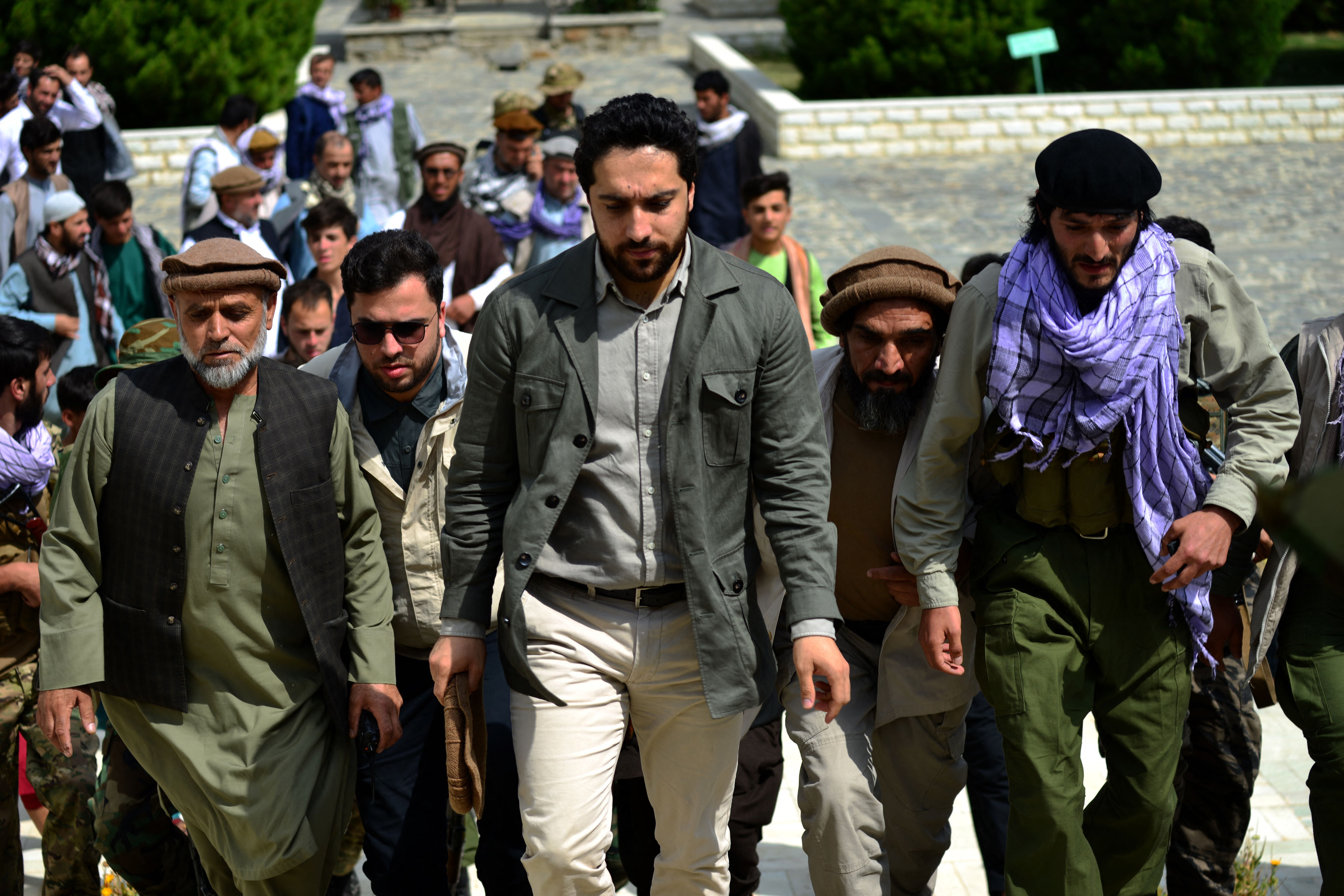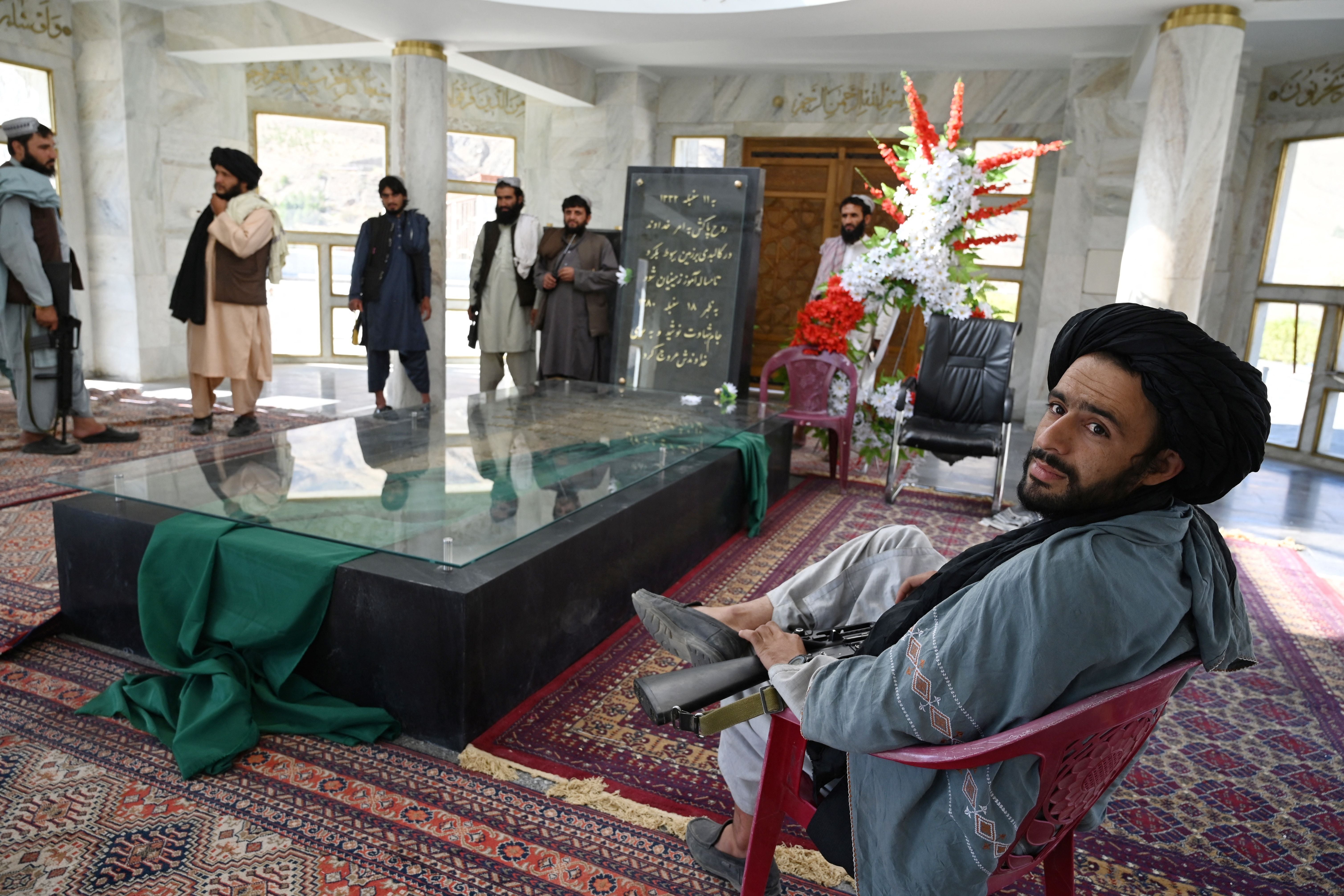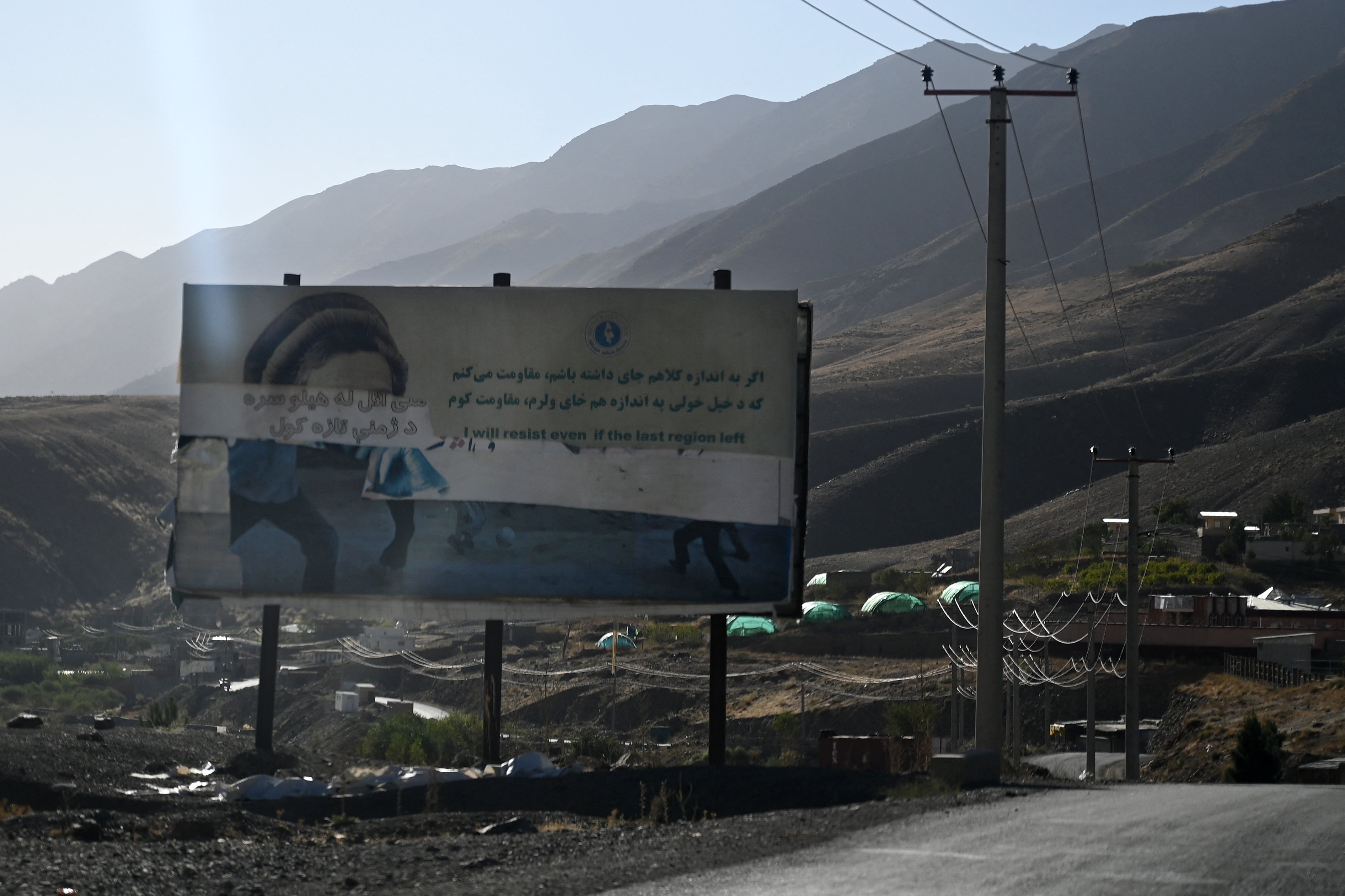The Afghan resistance movement bringing the fight to the Taliban’s doorstep
In a rare interview from his hideout in an undisclosed third country, National Resistance Front chief Ahmad Massoud tells Arpan Rai that the battle for Afghanistan’s future is far from over, even if the world’s attention has moved elsewhere


Your support helps us to tell the story
From reproductive rights to climate change to Big Tech, The Independent is on the ground when the story is developing. Whether it's investigating the financials of Elon Musk's pro-Trump PAC or producing our latest documentary, 'The A Word', which shines a light on the American women fighting for reproductive rights, we know how important it is to parse out the facts from the messaging.
At such a critical moment in US history, we need reporters on the ground. Your donation allows us to keep sending journalists to speak to both sides of the story.
The Independent is trusted by Americans across the entire political spectrum. And unlike many other quality news outlets, we choose not to lock Americans out of our reporting and analysis with paywalls. We believe quality journalism should be available to everyone, paid for by those who can afford it.
Your support makes all the difference.When the CIA decided to take back thousands of stinger missiles from Afghanistan in the 1980s, fearing they would fall into the hands of Iran, they knew of only one powerful warlord they could trust to help.
US agents held secret talks with the fabled hero of Afghanistan’s resistance against the Soviets and the Taliban – Ahmad Shah Massoud, the guerrilla commander who famously warned the West about the threat of al-Qaeda and Osama bin Laden months before 9/11.
Massoud was killed two days before the attack on the World Trade Center, when two of Bin Laden’s men walked into his home in Takhar masquerading as journalists and and detonated a bomb they had placed in their camera. His then 12-year-old son Ahmad Massoud became the undisputed heir of Afghanistan’s domestic resistance against ultra-fundamentalist terrorism.

“He didn’t choose to be the saviour of Afghanistan, he was born into it. It came to him,” says one of his close aides, as two armed young men guard the now 34-year-old Massoud’s quarters in a third country that The Independent has agreed not to reveal.
Given the circumstances of his father’s death, it is not surprising that this rare interview with the younger Massoud is conducted with a high degree of secrecy and thorough security checks.
Twenty-two years later, the Taliban is back in control of Afghanistan. The militant group seized Kabul on 15 August 2021 after the withdrawal of the western-allied forces that had invaded the country after 9/11, and although the Panjshir Valley held out for several more weeks as one of the fiercest pockets of resistance, Massoud finally fled into exile in September.
Sitting with his trademark woollen pakol (cap) resting in his lap, the chief of the National Resistance Front (NRF) is the spitting image of his late father. He has adopted the clean-shaven, neatly dressed look of a diplomat rather than that of a military leader, but he remains intimately aware of and involved in the grisly guerilla operations still being carried out by his forces in the mountain passes and gorges of northern Afghanistan.

It has now been more than a year since the NRF held territory in Afghanistan, but Massoud says his fighters are bringing the fight to the Taliban in 20 of the country’s 34 provinces, particularly in the northern and western regions.
An aide says the NRF has killed hundreds of Taliban militants since August 2021, and that the war of resistance continues to be waged despite the interest of the international community having shifted to conflicts elsewhere, such as the wars taking place in Ukraine and Gaza.
“We are arranging 15 to 20 military operations per month in regions occupied by Taliban, and in each of these, we are able to kill three to eight of their terrorists,” the aide says.
Massoud won’t go into detail about exactly where and when his forces will strike, for operational reasons. “I will definitely not tell you what my forces are doing as we speak, or what the world is going to see in the coming days. But let’s just say the NRF is defending our Afghan people, giving them a fighting chance and a hope to defend themselves,” he says.

“What we have, as sort of a military campaign, is a defensive purpose against the tyranny, the barbarism and the terror of the Taliban. Behind the disastrous situation in Afghanistan, only the Taliban can be found guilty. Therefore the Taliban leaves us with no choice but to defend ourselves [with whatever means are at our disposal],” he explains.
Experts are sceptical of Massoud’s ability to loosen the Taliban’s grip on power on his own, but, with no realistic prospect of allied international forces coming back with boots on the ground, the NRF is seen as the best bet to oppose the Islamist regime. Earlier this month, Massoud gathered a number of allied groups for a conference in Vienna aimed at forming a united anti-Taliban bloc.
The next step will be to gather international backing, but Massoud says he no longer expects this to come in the form of military or financial support. He and other anti-Taliban leaders remain jaded over the West’s decision to withdraw in 2021, which they see as a betrayal. For now, it would be enough for major world powers to express support for the resistance and refuse to grant the Taliban regime the international recognition it craves.

“We don’t want military aid or money from the west,” he says. “But in the interest of democracy, they should help Afghanistan form a legitimate government. The world should not compromise [with the Taliban]. Everyone who is watching Afghanistan right now should stand strong with us.”
Massoud expresses anguish over the situation faced by members of his and other Afghan forces who stood by the US and Nato as soldiers, pilots and logistical support and have been forced to either flee their country or face persecution and death at the hands of the Taliban’s de facto authorities.
He is careful not to place too much blame on the western withdrawal, but says the idea that the US brokered an “amnesty” with the Taliban in respect of the local fighters and the ousted government officials it left behind was nothing but a barefaced lie.
“The targeted killing of NRF fighters by the Taliban still continues. Thousands of people have been killed in the Taliban’s bloodshed. Of course, we have killed many, many more of their forces, and still face thousands of them inside Afghanistan.”

So far, no country has formally recognised the Taliban as the legitimate rulers of Afghanistan – a position that is in line with that of the UN. But solidarity in condemning the forceful overthrow of Kabul’s democratically elected government is starting to give way to pragmatism, as regional powers, including China and India, begin to reopen lines of communication with this strategically significant country.
Pro-democratic leaders like Massoud struggle to understand how the world, and the west in particular, can stay so quiet about the Taliban’s control of Afghanistan after 20 years of actively fighting them on the ground; he says this suggests that the world is now “OK with what is happening in Afghanistan”.
“Yes, Afghanistan is no longer a priority for the west,” he concedes. “I [too] hope peace comes for the Ukrainians, for the people in the Middle East. [But] I hope for peace to come to Afghanistan, too.
“I want to ask if the Biden administration is OK with a military group storming the government and taking power from a democratic administration,” he says. “If they were not OK with the Capitol riots, why are they OK with the Taliban?”
As for his own future, Massoud says he is kept up at night as he struggles with the question of how to finish his father’s work, defeat the Taliban, and bring peace to Afghanistan. “I wish I didn’t love the people of Afghanistan, because then I could leave this war and be away from this. But I love them beyond hope,” he says.

If he manages to defeat the Taliban, Massoud, who was educated in both Iran and Britain, says he has no desire to lead a civilian government. He suggests it would be better for a woman to lead the country, given how women are currently suffering under the Taliban’s misogynistic regime.
“Hopefully, I will not be in power. The people will decide on a much more competent figure to be in charge – a woman, preferably – and leave me to a peaceful life.”
He also reveals that he is a new father to a six-month-old baby, and that the first in the new generation of the Massoud dynasty is a girl. He hopes that her experience of childhood is not like his own, in which, as the heir to a warlord, he shadowed his father as he gave interviews from military helicopters.
“I want to be a teacher in a university. To be a professor – that’s my personal call or ambition,” he says, adding: “I want to spend some more time with my daughter.”
Join our commenting forum
Join thought-provoking conversations, follow other Independent readers and see their replies
Comments